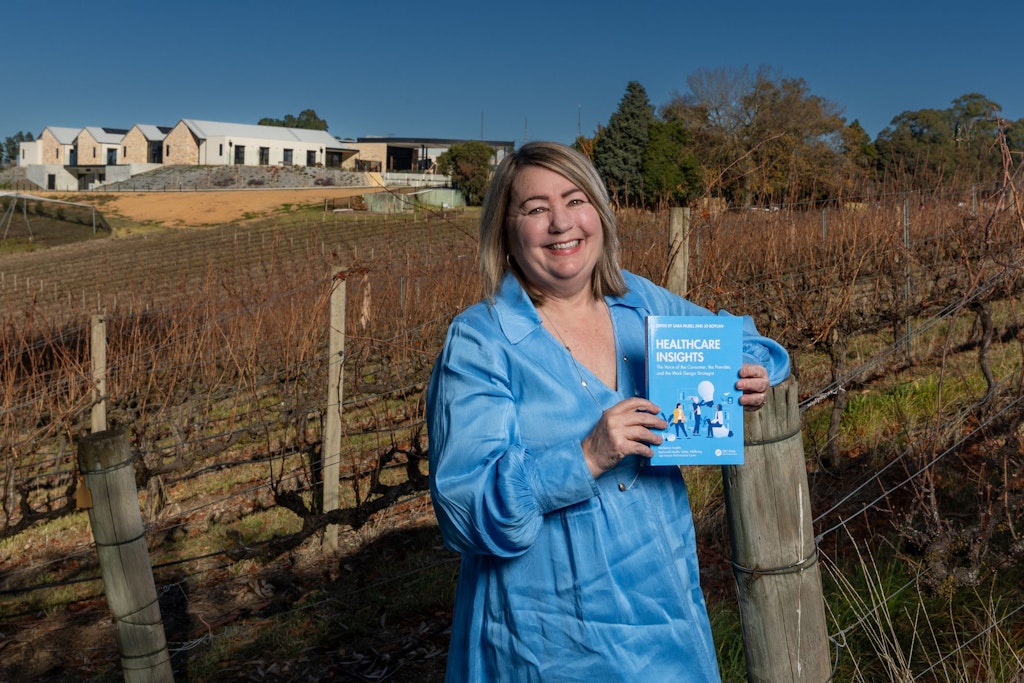Teaching an old aged care system new tricks about healthy ageing
Last updated on 3 September 2024

Jo Boylan isn’t here to talk about bad news stories, but she knows what it’s like for a bad system to bring everyone down with it. Now, after years of experience in the industry, Ms Boylan – the CEO of Clayton Church Homes – is excited to share insights that will help the current and next generation provide better care for older people.
Ms Boylan spoke to hello leaders about Healthcare Insights: The Voice of the Consumer; the Provider and the Work Design, a new book edited by Dr Sara Pazell and herself. It features chapters from healthcare and aged care experts designed to help students and professionals challenge stereotypes, focus on healthy ageing and promote re-enablement.
“There’s a quote by W. Edwards Deming, ‘A bad system will beat a good person every time’,” Ms Boylan explained.
“Sometimes people give in or become resigned to the failures in systems. Oakden [a South Australian aged care facility shut down in 2017 due to abuse and neglect of older people] is one of those situations where people resigned to the system, the futility of it and started blaming each other or didn’t even try anymore, it was so broken.”
Ms Boylan knows that great strides have been made to advance older people’s rights, including the recent Royal Commission reforms. She said the Royal Commission occurred because of inaction, not deliberate actions, but often it can still be just as problematic.
Instead, she wants to see individuals in aged care take charge of their own skills and the systems around them.
“Inaction can be part of this problem and remotivating people to understand that action, and being accountable, actually leads to mastery, that’s when we become masterful. That’s when you’re the best version of yourself. I know I’m getting masterful when my outcomes improve. That’s what happens with accountability for our actions,” she said.
Examples of improved outcomes include one CCH resident who moved into residential care for a year after suffering a leg fracture. Ms Boylan said staff worked closely with the 86-year-old to achieve reablement and she actually returned home.
This is the kind of healthy ageing approach she loves. But unfortunately, many systems are burdened by an ageist tilt to healthcare.
“Can you teach people to think differently when ageism is so prolific in aged care? You can, you just have to dig in and get a deeper understanding of what ageism is and what’s happening,” she added.
“Our Australian policies are ageist. We have ageism that is systemic.”
Ms Boylan also called out the AN-ACC funding model for being a model of dependency, rather than independency.
“What you fund is what you get. Now, I work hard on getting people to understand the ways you can push back on unintentional disability, or ill-being and how to address ageism,” she added.
Ultimately, it’s clear to see that Ms Boylan is focused on the bigger picture. She is optimistic about Australia taking the lead in making healthy ageing normal again, overcoming a history of routine and processes, not person-centred care.
She said everyone, including herself, has to work on combatting ageism within society. But the steps to success are there and they must come from the very top. And it’s at the top where she said leaders need to question where their investments are, and whether their priority is reablement and restorative care, or not.
“Actions to promote healthy ageing of older people, through different settings and multidisciplinary methods require fundamental change at every level. The expectations, leadership, growth, mindset and belief that healthy ageing as a human right must start at the top with the board and the executives,” she said.
“Could you imagine if we redesigned hospitals and aged care to have rehabilitation and re-enablement as the default position when a person needs it? Could you imagine if we offered people the opportunity to reverse this state of decline and move back to their previous level of function? Hospitals don’t do that. That level of choice is still not there for older people.”